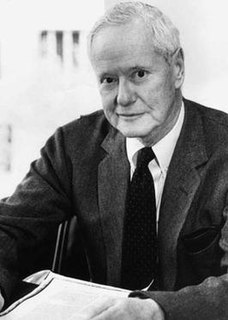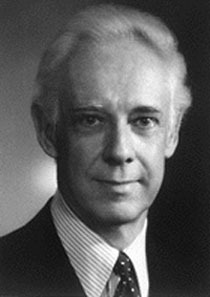A Quote by Irving Langmuir
Happy indeed is the scientist who not only has the pleasures which I have enumerated, but who also wins the recognition of fellow scientists and of the mankind which ultimately benefits from his endeavors.
Related Quotes
The books of the great scientists are gathering dust on the shelves of learned libraries. And rightly so. The scientist addresses an infinitesimal audience of fellow composers. His message is not devoid of universality but its universality is disembodied and anonymous. While the artist's communication is linked forever with its original form, that of the scientist is modified, amplified, fused with the ideas and results of others and melts into the stream of knowledge and ideas which forms our culture. The scientist has in common with the artist only this: that he can find no better retreat from the world than his work and also no stronger link with the world than his work.
The rich and luxurious may claim an exclusive right to those pleasures which are capable of being purchased by pelf, in which the mind has no enjoyment, and which only afford a temporary relief to languor by steeping the senses in forgetfulness; but in the precious pleasures of the intellect, so easily accessible by all mankind, the great have no exclusive privilege; for such enjoyments are only to be procured by our own industry.
Like it or not, we live in interesting times. They are times of danger and uncertainty; but they are also the most creative of any time in the history of mankind. And everyone here will ultimately be judged - will ultimately judge himself - on the effort he has contributed to building a new world society and the extent to which his ideals and goals have shaped that effort.
When I think about discussions at the Society for Philosophy and Psychology, a group which includes not only philosophers and psychologists, but also computer scientists and linguists, it is noteworthy that one can't always tell just from the content of particular contributions from the audience, whether a given questioner is a philosopher or an empirical scientist.
Already nature is serving all those uses which science slowly derives on a much higher and grander scale to him that will be served by her. When the sunshine falls on the path of the poet, he enjoys all those pure benefits and pleasures which the arts slowly and partially realize from age to age. The winds which fan his cheek waft him the sum of that profit and happiness which their lagging inventions supply.
Every man, in proportion to his virtue, considers himself, with respect to the great community of mankind, as the steward and guardian of their interests in the property which he chances to possess. Every man, in proportion to his wisdom, sees the manner in which it is his duty to employ the resources which the consent of mankind has intrusted to his discretion.
The material which a scientist actually has at his disposal, his laws, his experimental results, his mathematical techniques, his epistemological prejudices, his attitude towards the absurd consequences of the theories which he accepts, is indeterminate in many ways, ambiguous, and never fully separated from the historical background . This material is always contaminated by principles which he does not know and which, if known, would be extremely hard to test.
Only when he has published his ideas and findings has the scientist made his contribution, and only when he has thus made it part of the public domain of scholarship can he truly lay claim to it as his own. For his claim resides only in the recognition accorded by peers in the social system of science through reference to his work.
We find that one of the most rewarding features of being scientists these days ... is the common bond which the search for truth provides to scholars of many tongues and many heritages. In the long run, that spirit will inevitably have a constructive effect on the benefits which man can derive from knowledge of himself and his environment.
Whatever the situation may be, in the recollection of death there is reward and merit. For even the man engrossed in the world benefits from it by acquiring an aversion to this world, since it spoils his contentment and the fullness of his pleasure; and everything which spoils for man his pleasures and his appetites is one of the means of deliverance.
The purpose of life seems to be to acquaint a man with himself and whatever science or art or course of action he engages in reacts upon and illuminates the recesses of his own mind. Thus friends seem to be only mirrors to draw out and explain to us ourselves; and that which draws us nearer our fellow man, is, that the deep Heart in one, answers the deep Heart in another, - that we find we have (a common Nature) - one life which runs through all individuals, and which is indeed Divine.





































